-
Steps for Recycling Industrial Hazardous Waste
Recycling hazardous waste is an important part of industrial waste management that helps conserve resources and save on manufacturing costs. If you are interested in recycling industrial hazardous waste near Atlanta, then you can benefit from becoming familiar with the following steps:
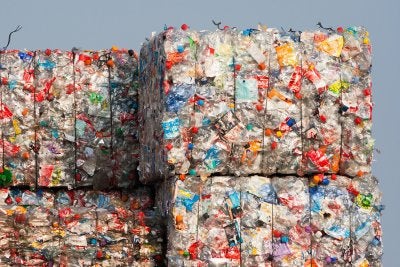
Determine Waste Regulations
The first step in properly recycling hazardous waste is to learn about the EPA waste disposal regulations for the material that you are working with. Refer to the EPA’s regulatory definitions to determine what category your waste material falls under.
Consider Cost-Accounting
You will find that there are many cost-accounting tools available to companies. These tools can help you track your company’s resource use and improve its resource efficiency. Cost-accounting tools usually consider factors like recycling activities, pollution prevention measures, energy savings, and the reduction of greenhouse gas emissions.
Choose a Facility
Once you are ready to begin the industrial waste recycling process, the next step is to locate a responsible recycler. The recycling facility should have a history of permit and environmental compliance, be financially sound, and employ responsible waste management practices. Also, learn if the facility has adequate pollution liability insurance, provisions for any potential closure and cleanup costs, and an effective drop-off and tracking protocol.
Confirm Recycling Legitimacy
Ensuring that your industrial hazardous waste will be properly handled is an important part of the recycling process. You should confirm that the recycling company is legitimate and has well-maintained records of recycling transactions. Also, determine if the secondary material can be effectively used as claimed and if it is being used in amounts more than necessary.
Track Recycling Progress
You have 2 good reasons to measure your success when it comes to recycling industrial hazardous waste. First, monitoring and reporting your company’s recycling progress can have a beneficial impact on its public image. Second, keeping track of your recycling performance provides you with information to share with stakeholders and investors to demonstrate your company’s adherence to environmental regulations.
-
The Importance of Commercial Recycling
Does your company practice recycling in Atlanta? If not, then you may be interested in learning about the benefits that commercial recycling programs offer business owners. Continue reading to learn about the importance of commercial recycling.
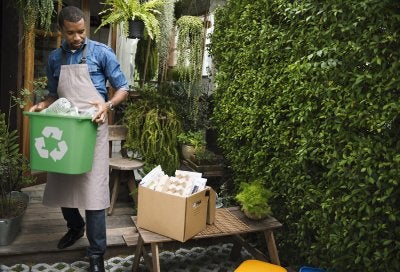
Protecting the Environment
Recycling benefits the environment in many ways. By recycling materials instead of throwing them in the waste bin, for example, your company can help reduce the amount of trash sent to local landfills. Also, recycling lessens the demand for raw materials that would otherwise need to be refined or mined. In this way, recycling can help reduce energy needs and the impact of mining and manufacturing on air quality and the environment.
Reducing Operational Costs
Instituting a commercial recycling program for your company is more than good for the environment because you can save on waste collection costs by tossing more of your waste into recycling bins. By using containers for metal, paper, and plastic recycling, you can potentially cut down on the number of dumpsters or trash pickups that your company requires.
Improving Resource Efficiency
When companies begin a recycling program, it’s common for areas of unnecessary waste to come to light. By paying more attention to the type and amount of materials that you use and adjusting your practices, your company may be able to spend less money on supplies and waste collection.
Enhancing Company Image
Going green is an excellent way to improve the way that the public views your company. For this reason, you can benefit from conducting an energy audit of your facility and learning where your biggest areas of improvement are. Then, you can enhance your company’s public image by tracking and reporting the progress of your green programs.
Boosting Employee Satisfaction
With the growing awareness of the impact of recycling on the environment, more and more people expect to be able to recycle in the workplace. Beginning recycling programs and similar ventures are excellent ways to improve employee satisfaction by helping them help their environment.
-
Ideas for Making Your School a Greener Place
Are you looking for ways to cut down on your school’s waste near Atlanta? If so, then the good news is that there are many ways in which schools can improve their waste management practices and be more environmentally friendly. Continue reading for tips on making your school a greener place.
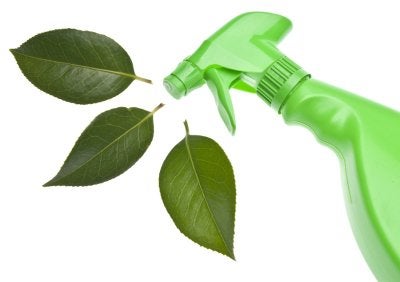
Conduct an Audit
You already know that you want to make your school more environmentally friendly, but knowing where to start can be overwhelming and confusing. For this reason, it’s a great idea to start with energy and waste audits. You can conduct these audits yourself or work with a professional company. The audit process will give insight into your school’s biggest problem areas.
Speak with Staff
There is a good chance that you’re not the only one who wants to work for a greener school. For this reason, you can benefit from speaking with teachers, custodians, and other staff members to learn their opinions regarding potential areas for improvement and which green initiatives they would be interested in participating in.
Include the Kids
If you work with children, then you already know how enthusiastic and outspoken they can be when it comes to learning about and protecting the environment. Include students in the process of making your school greener by asking for their input and letting them help with or even lead programs for educating others about recycling facts, setting up recycling bins, planting school gardens, and starting green clubs.
Put up Signage
Your school may already be greener than you would guess. It’s common for institutions to make use of energy-efficient and environmentally friendly products and practices, and it’s also common for only a handful of people to be aware of these green initiatives. Learn what your school already does to be green and spread the word through signs. Also, post educational signage that informs others of any new green initiatives that your school adopts and what they can do to help.
-
Where Is Formaldehyde Found?
When it comes to properly managing industrial waste near Atlanta , knowing where to find specific materials is essential. Formaldehyde, for example, is used in a broad range of products, and exposure to this chemical can cause irritation of the eyes, nose, skin, and throat. Also, high levels of formaldehyde exposure may cause some cancers. For these reasons, understanding where you might encounter this chemical is an important part of the waste management process.
Formaldehyde can be found in resins that are used in the manufacturing of composite wood products such as fiberboard, particleboard, and hardwood plywood. Insulation, building materials, pesticides, and fertilizers can also contain this chemical, along with products like permanent press fabrics, glues, coatings, paints, paper products, finishes, and lacquers. Waste from some cosmetics, medicines, and consumer products like fabric softeners and dishwashing liquids may contain preservatives that use formaldehyde. Finally, formaldehyde is found in cigarette smoke and emissions from unventilated fuel-burning appliances such as kerosene space heaters and gas stoves. Understanding these facts about where to find formaldehyde can improve your company’s waste management and trash removal practices.
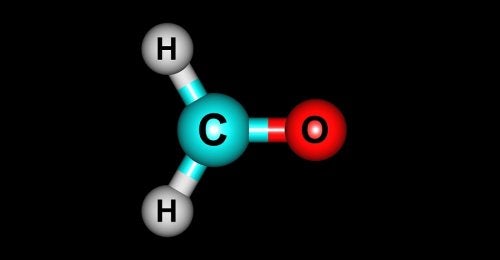
-
The Role of Landfills
If your business is like many others, then you rely heavily on dumpster rental services or trash pickup near Atlanta. Have you ever wondered what happens after the waste is removed from the dumpster? The trash that’s taken from your company’s dumpsters is transported to a landfill, and locations like these play an important role in waste management.
Today’s landfills are well-managed facilities that provide a place for the disposal of solid waste. These locations are monitored, operated, and designed to guard the surrounding environment against contamination from the waste stream. Also, landfills are engineered to comply with federal regulations and use monitoring systems designed to protect the environment by checking for signs of groundwater contamination and landfill gas. The disposal of solid waste in landfills is one part of an integrated waste management process, and modern landfills are created in accordance with strict requirements that were established under the Resource Conservation and Recovery Act.
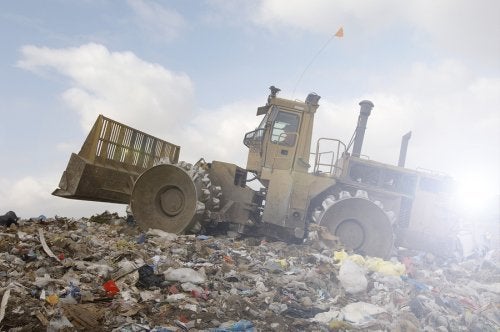
-
Exploring the Life Cycle of Electronics
Electronics play a critical role in the daily life of the average American. If you’re like many people who recycle near Atlanta, then you may have questions about the process of electronics or e-waste recycling. Read on for some insight into the life cycle of electronics and why your used devices should be recycled and not tossed into dumpsters.
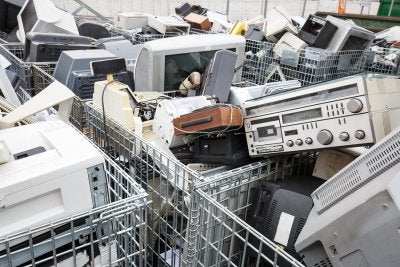
Mining
Materials like copper, platinum, gold, and iron are mined from the earth, refined, and then used to create a broad range of the electronics that people use every day. The process of refining raw materials produces greenhouse gas emissions and requires a significant amount of energy. For these reasons, recycling the materials used to make electronics conserves energy and benefits the environment.
Manufacturing
Next, the refined materials are used in the manufacturing of electronics. Some manufacturers also use recycled materials during this process. Then, the electronics are sold and used.
Purchasing
When purchasing electronics, it’s ideal to choose those that are designed with environmentally friendly features. Also, select those products that are made with durability, longevity, and recyclability in mind if you want to reduce your environmental impact.
Collecting
Ideally, all used electronics would be disposed of through a certified electronics recycler. This step can be done in a variety of ways. For example, electronics retailers and community centers often have e-waste recycling bins. Also, some companies offer warranty and mail-in programs that reward consumers for sending in their old devices. These used products can be refurbished or recycled, cutting down on the need for mining and processing new materials. Unfortunately, some used electronics are thrown in waste bins and disposed of in landfills. Once this happens, the valuable materials used to make the electronics cannot be recovered and recycled.
Recycling
Those electronics that do make it to an e-waste recycling facility are dismantled before being sorted into categories of valuable and recyclable materials, such as aluminum, gold, glass, and copper. Then, the materials return to the supply chain where they can be used to create new electronics and other products.
-
What Is Creative Reuse?
Recycling serving Atlanta can be done in quite a few different ways . Recycling can be broken down into downcycling and upcycling, and the latter is also known as creative reuse. In some senses, creative reuse is the most productive form of waste disposal because it aims to turn unwanted or unused items into something more practical or valuable. You can apply the principles of creative reuse to almost anything, and thinking outside the box can go a long way. Keep reading if you’d like to learn a little bit more about creative reuse.
The purpose of upcycling and creative reuse is to add value to an existing product. This is in contrast to downcycling, which takes a product and recycles it in a way that gives it less value. Upcycling is particularly popular in the art community. With a creative eye, you can take old, broken, or worn out products and use them to create interesting sculptures, still life paintings, or unique photographs. By repurposing old materials that would otherwise be thrown away, you save room in landfills and get to enjoy more valuable products. As is the case with all recycling, this goes a long way in protecting the environment.
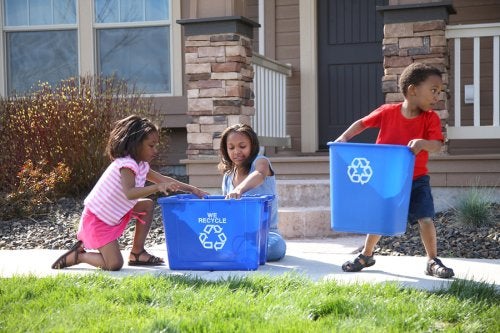
-
Start Planning for America Recycles Day
As effective as recycling serving Atlanta can be, it can only make a difference if everyone commits to the cause. It’s important to raise awareness of the importance of responsible waste disposal, and people can only employ the right practices if they understand them. The purpose of America Recycles Day is to spread the word and educate people about the processes and benefits of recycling and responsible waste management. It’s also easy to find the materials you need to keep your community educated and motivated. Feel free to continue reading, and be sure to start planning for America Recycles Day .
America Recycles Day is a nationwide holiday that encourages people to celebrate the power of recycling and sustainability. There are events held all over the country that are dedicated to teaching people how to recycle, what the process is like, and what kinds of materials can be recycled. People of all ages should understand how the practice of recycling can reduce our collective carbon footprint, keep waste out of landfills, and bring reusable materials back into circulation. From elementary school classrooms to corporate offices, people everywhere can come to recognize the importance of sustainability thanks to America Recycles Day events.
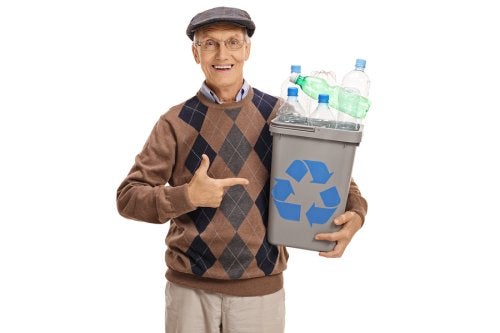
-
The Differences Between Solid, Hazardous, and Toxic Waste
There are all different types of waste near Atlanta, and the way you should handle your waste depends on the kind that you’re dealing with. The terms solid, hazardous, and toxic are 3 adjectives used to describe different types of waste. While solid waste is relatively easy to recognize and understand, the terms hazardous and toxic tend to throw people off. Knowing what kind of waste you have is important when it comes to choosing the proper type of waste disposal, and you can always ask your waste management professional for help . Keep reading for a brief overview of the differences between solid, hazardous, and toxic waste.
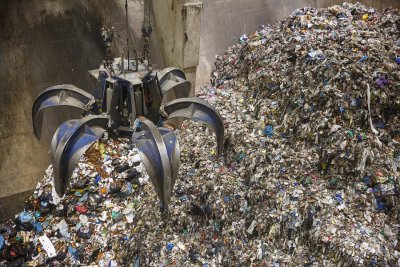
Solid
The category of solid waste might seem self-explanatory, but it may also include more than you expected. Solid waste refers to the garbage in your trashcans, but it also includes wastes of different states of matter. Liquid and gaseous wastes, like sludge and pollutants, can also fall under the umbrella of solid waste. Municipal solid waste, or MSW, is the name for general solid waste that comes from public garbage cans or residential homes. Much solid waste can be recycled, especially materials like plastic and aluminum, but a great deal of it also ends up in landfills.
Hazardous
When a waste material is considered hazardous, it no longer fits within the realm of solid waste. However, hazardous waste is not exactly the same as toxic waste. The Environmental Protection Agency outlines a few criteria that can qualify a particular type of waste as hazardous. Waste that is corrosive, flammable, or reactive can be considered hazardous, but toxicity is also a potential component of hazardous waste. It’s important to handle hazardous waste carefully, which is why the job is usually left for the professionals.
Toxic
Unlike solid and hazardous wastes, toxic waste is a very specific type. According to the Environmental Protection Agency, waste must be harmful or deadly to people or animals that ingest it. Thus, toxic waste still falls under the category of hazardous waste, but it’s not the same thing. You will also need a professional to handle toxic waste.
-
Easy Ways to Reduce Landfill Waste
We use landfills to take care of waste that we can’t recycle, but that doesn’t mean landfills are foolproof. This form of waste disposal can still harm the environment, so the practice is not quite as healthy as recycling serving Atlanta. Take a look at this video for a few easy ways to reduce landfill waste.
Recycling helps to keep waste out of landfills, but it’s not the only method you can use. When you bring your own bags to the grocery store, you won’t have to waste the bags that they offer you. If you forget your own reusable bags, ask for paper bags because they biodegrade more quickly. You should also consider printing on both sides of the sheet, and hold onto scrap paper so you can compile your scraps into a new notepad. Try to buy recycled products, and use food waste and yard trimmings for composting.
RECENT POSTS
categories
- Uncategorized
- Waste Management Atlanta
- Waste Disposal and Recycling
- Hazardous Waste Disposal
- Chemical waste removal
- solid waste removal
- R3 Program
- Sustainable Organizations
- Sustainable Waste Removal
- Commercial Waste Removal
- Materials Management Program
- Dumpster Rental
- Roll Off Dumpsters
- Construction Site Waste Removal
- Sustainability
- Recycling in Atlanta
- Industrial Recycling
- Industrial Waste Removal Services
- Southern Waste & Recycling
- Waste Removal Atlanta
- Waste Specialists
- Atlanta
- Infographic
- Front Load Dumpsters
- Rear Load Dumpsters
- Reusable Electronics
- Dump Truck Atlanta
- Recyclable Electronics
- Trash Compactors
- Recycling
- Recycling Program
- Office Recycling
- Metal Recycle
- Electronic Waste
